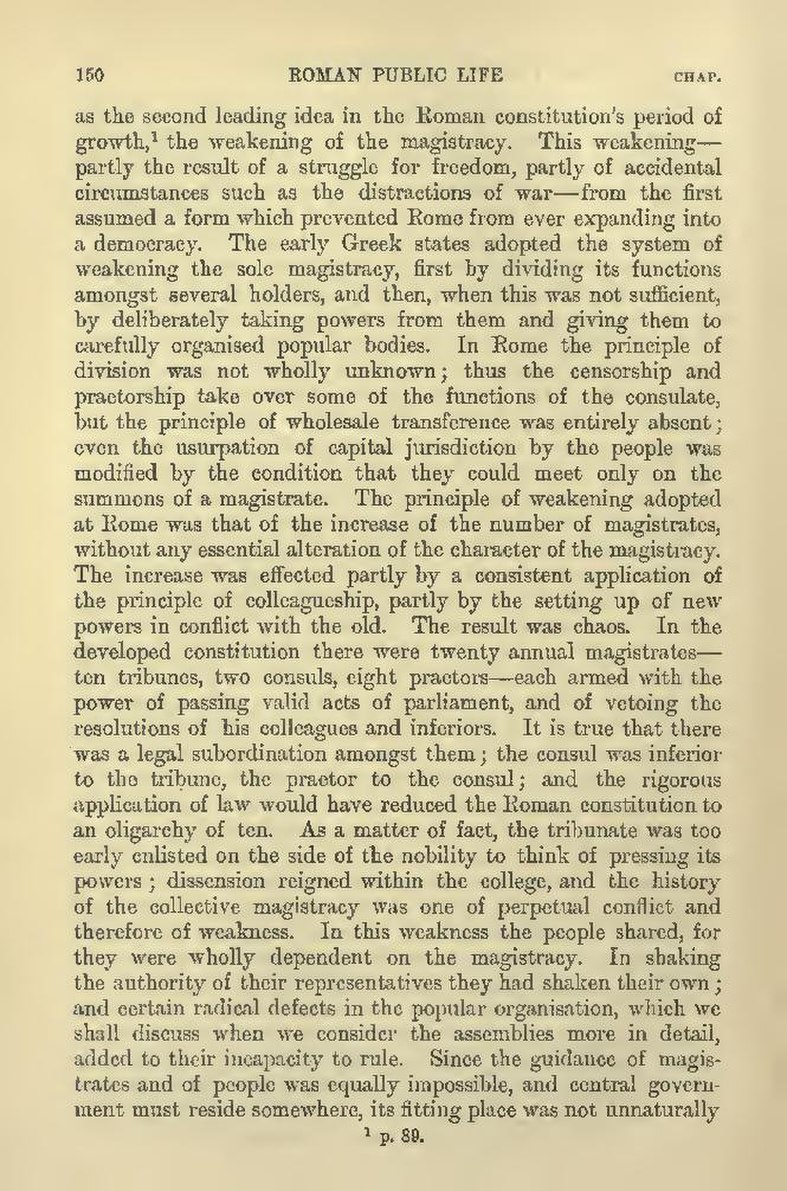as the second leading idea in the Roman constitution's period of growth,[1] the weakening of the magistracy. This weakening—partly the result of a struggle for freedom, partly of accidental circumstances such as the distractions of war—from the first assumed a form which prevented Rome from ever expanding into a democracy. The early Greek states adopted the system of weakening the sole magistracy, first by dividing its functions amongst several holders, and then, when this was not sufficient, by deliberately taking powers from them and giving them to carefully organised popular bodies. In Rome the principle of division was not wholly unknown; thus the censorship and praetorship take over some of the functions of the consulate, but the principle of wholesale transference was entirely absent; even the usurpation of capital jurisdiction by the people was modified by the condition that they could meet only on the summons of a magistrate. The principle of weakening adopted at Rome was that of the increase of the number of magistrates, without any essential alteration of the character of the magistracy. The increase was effected partly by a consistent application of the principle of colleagueship, partly by the setting up of new powers in conflict with the old. The result was chaos. In the developed constitution there were twenty annual magistrates—ten tribunes, two consuls, eight praetors—each armed with the power of passing valid acts of parliament, and of vetoing the resolutions of his colleagues and inferiors. It is true that there was a legal subordination amongst them; the consul was inferior to the tribune, the praetor to the consul; and the rigorous application of law would have reduced the Roman constitution to an oligarchy of ten. As a matter of fact, the tribunate was too early enlisted on the side of the nobility to think of pressing its powers; dissension reigned within the college, and the history of the collective magistracy was one of perpetual conflict and therefore of weakness. In this weakness the people shared, for they were wholly dependent on the magistracy. In shaking the authority of their representatives they had shaken their own; and certain radical defects in the popular organisation, which we shall discuss when we consider the assemblies more in detail, added to their incapacity to rule. Since the guidance of magistrates and of people was equally impossible, and central government must reside somewhere, its fitting place was not unnaturally
- ↑ p. 89.
